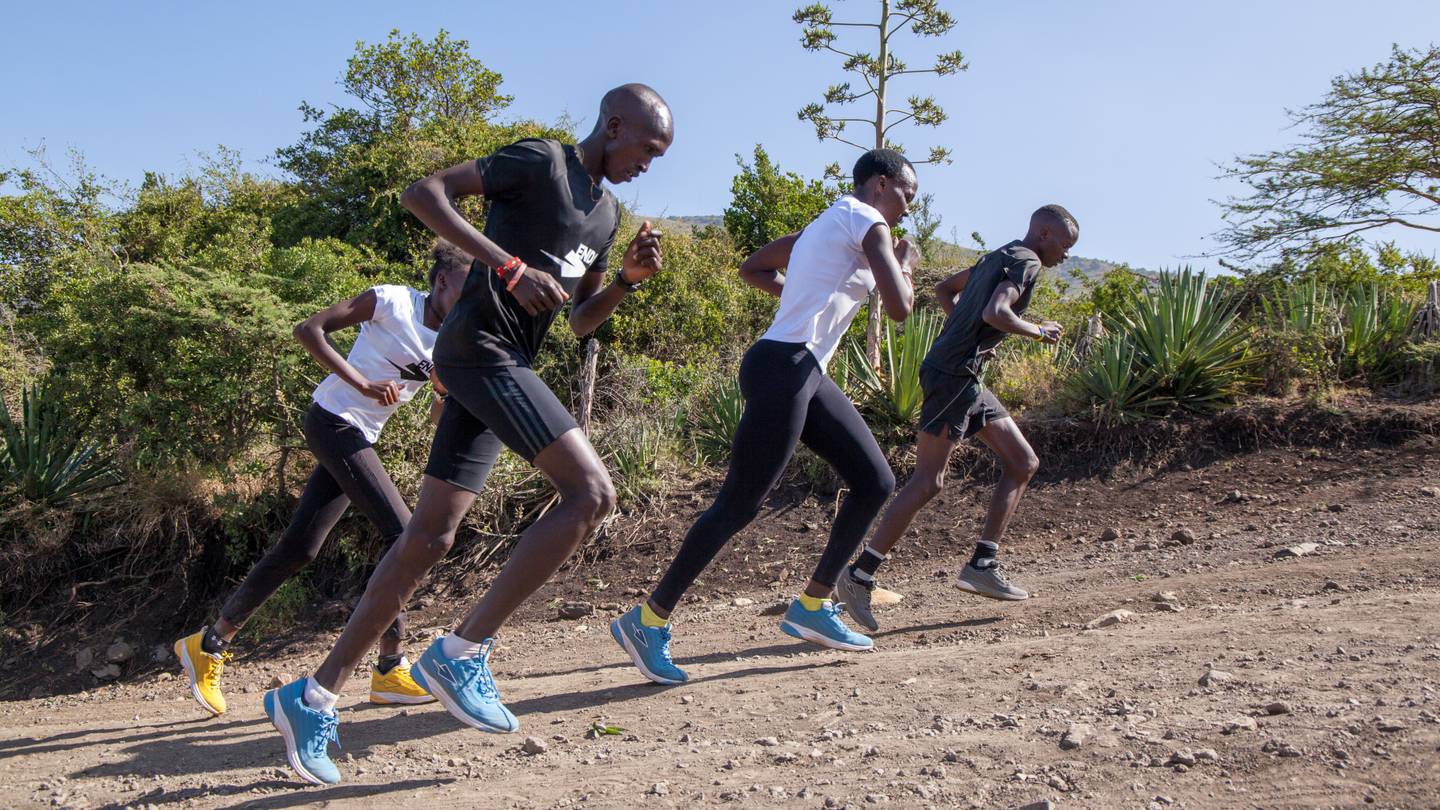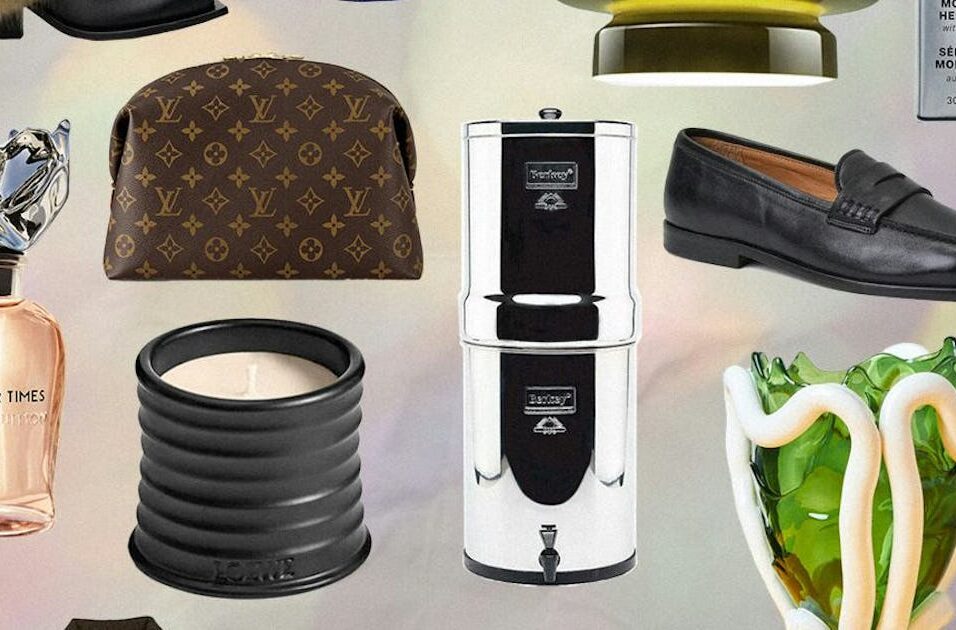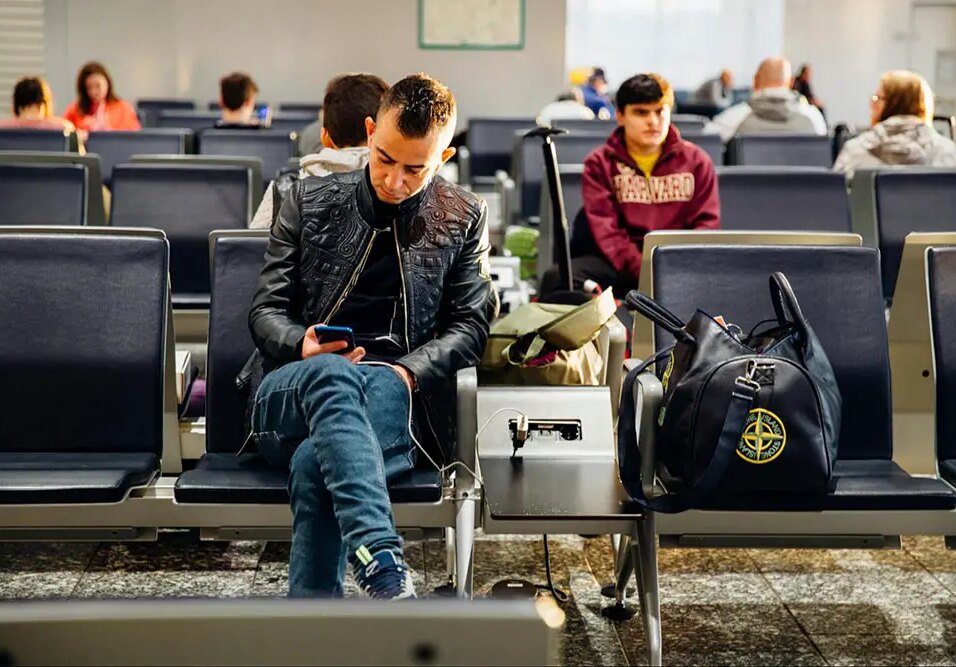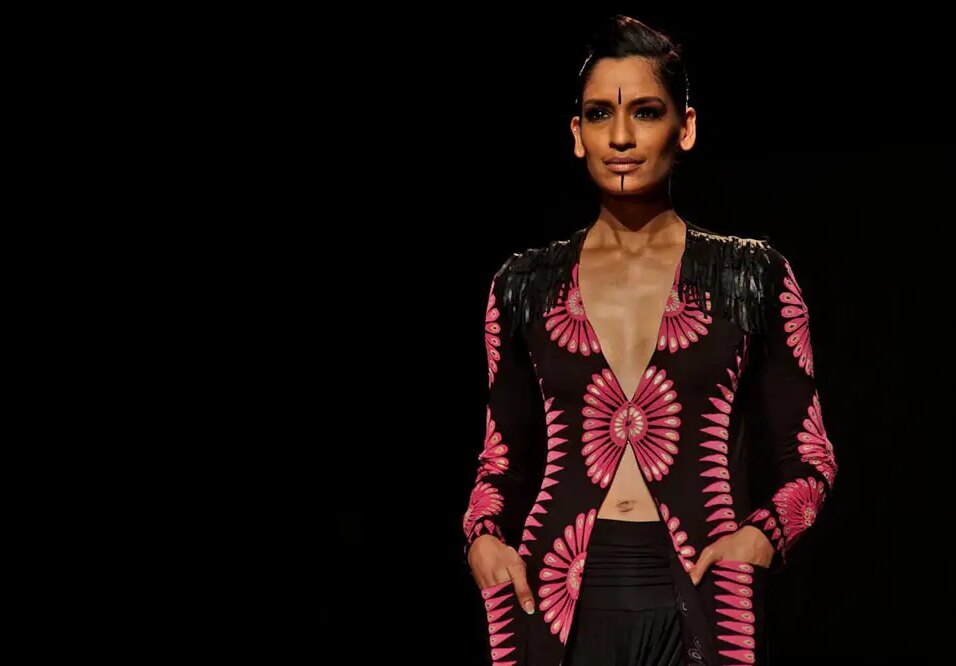African Sneaker Manufacturers Advance World
A pristine occasion of sneaker marketers is making waves throughout Africa.
From Nairobi to Dakar, model founders are following within the footsteps of pioneers like Bethlehem Tilahun Alemu, an Ethiopian businesswoman who first made the worldwide shoes trade get up to the possibility of in the community made sneakers.
Firstly impressed through conventional rubber-soled selate and barabasso sneakers, Alemu struck gold within the noughties, generating her model of shoes, slip-ons and boots known as SoleRebels, home made through native craftspeople the use of most commonly recycled fabrics. Inside of ten years, she had expanded from a mini store in Ethiopia’s capital, Addis Ababa, to a community of her personal mono-brand shops throughout Europe and Asia, supporting exports to 45 nations.
“It took me a decade to employ 400 people, but it shouldn’t have taken that long — and it wouldn’t have either if I’d had access to the right partners,” Alemu informed BoF in 2012, in a while then launching her nearest initiative, Made through Ethiopia, an organisation that brokers deals between Ethiopian shoes factories and global manufacturers.
Round that era, sneakerheads throughout East Africa become conscious about Ethiopia’s increasing production prowess. Between the two of them had been 4 highschool pals in Kenya who realised their dream of making an upmarket African sneaker model through tapping companions in Addis Ababa to put together underneath the banner Enzi Shoes.
Since next, alternative African sneaker manufacturers have made headway too, corresponding to Kenya’s efficiency working specialist Enda and South African powerhouse Bathu Footwear. The untouched bankruptcy within the continent-wide tale centres round fashion-forward start-ups like Ice, a Cameroonian sneaker model, and Nio A ways from Senegal, who’ve each won recognition of their house markets then catching the optic of native tastemakers and international celebrities.
A few of these manufacturers had been ready to enlarge to america and Europe due to a mix of resourceful workarounds to native marketplace demanding situations, the aid of diasporic customers international and savvy tweaks to the worldwide sneaker model playbook. Obviously, the made-in-Africa sneaker trade — or no less than the designed-in-Africa trade — is on an upward trajectory. However that doesn’t ruthless there aren’t some severe boundaries to triumph over.
Advertising and marketing native manufacturers in nations with a sneaker tradition that has lengthy been formed through the overwhelmingly dominant place of worldwide megabrands is proving to be an uphill effort for some founders.
A David-and-Goliath Marketplace
Presen the rate of sneaker sales in North America and Europe is in decline as customers pivot to alternative kinds, sneaker-mania is best simply starting to start out throughout Africa. World manufacturers have recognised that era the African shoes marketplace is mini in comparison to alternative areas, it has high-growth possible. Lots of the obese avid gamers have already put ill roots and need to enlarge.
Nike introduced its first bundle in West Africa closing August, including a bundle in Lagos’ Ikeja Town Mall to its current retail footprint around the continent in Kenya and South Africa. Adidas’s pristine Johannesburg bundle opened to a lot fanfare in 2021 due to crowd pleasing interiors that had been impressed through the South African town. Puma could also be increasing within the pocket, making utility of its international ambassador, Nigerian Afrobeats famous person Davido.
Native manufacturers no doubt can’t compete with advertising and retail budgets in this scale, however some at the moment are slowly getting into the mainstream, buoyed through Africa’s booming streetwear ecosystem, epitomised through companies like Ghana’s Free The Youth and streetwear festivals in Nigeria like Streek Souk and Homecoming, in addition to South Africa’s Sneaker Change, considered the continent’s greatest sneaker business display, based through Capetonian Zaid Osman.
“In sub-Saharan Africa, consumers are [traditionally] more conversant with leather footwear, so you see more sandals and slippers compared to sneakers,” stated Rhoda Aguonigho, a Lagos-based vogue industry guide and founding father of Lhaude Africa consultancy. “But the sneaker market is now being boosted by the young, vibrant streetwear community growing out of cities across the continent.”
World manufacturers are discovering ingenious tactics of tapping into the increasing call for for shoes from African customers. Closing 12 months, Fila pair collaborated with the frequent South African model Drip Shoes on a co-designed pill assortment.
The Funding Conundrum
Global traders — already cautious of split-up with their money in a world financial system with an more and more pessimistic outlook — are i’m not sure to again promising manufacturers on account of the complexities of doing industry within the pocket, professionals counsel.
“While investors are interested in tapping into the size and potential of the African footwear market, there’s a major trust issue,” Aguonigho stated. “There are the infrastructure problems, [and] supply chain issues that need to be addressed.”
Running a start-up will also be difficult throughout a lot of the continent. In line with the untouched 2019 version of the Global Warehouse’s diversion of doing industry score, maximum African nations rating poorly. The gigantic majority fall within the base part of the worldwide score that measures the whole thing from getting decent electrical energy and imposing commitments to the potency of tax regimes and cross-border business rules.
But some manufacturers have controlled to draw traders from each akin and a ways.
Enda, the Nairobi-based trainers model based through Navalayo Osembo in 2016, is one. Along with elevating $350,000 in 2019 from traders, together with Mizizi Capital and Umoja Rubber Merchandise, a Kenyan shoes production primary, Enda raised an additional $1.1 million in 2021 to fulfill exceptional call for. In 2020, gross sales of the emblem’s graceful $80 trainers — every embellished with the recognisable Enda ‘spear’ emblem borrowed from the Kenyan flag — grew 323 % year-on-year as wearing items companies international benefitted from the pandemic-era condition and wellness growth.
:quality(70)/cloudfront-eu-central-1.images.arcpublishing.com/businessoffashion/FNH2QQG3VBFBZPD6DJU5LDL7TE.jpg)
The emblem — which has been counseled through celebrities corresponding to Kenyan actress Lupita Nyong’o and is stocked along global names like On and Adidas at outlets just like the speciality working bundle Runners Level in Nairobi — had additionally just lately fasten Christopher Williams, a former Nike, Adidas and VF Corp govt, as an investor and chair of its board of administrators, to spice up its global ambitions.
However the closing two years noticed Enda run into difficulties with manufacturing, sourcing and distribution that ate into the corporate’s base sequence. A few of these problems had been common, corresponding to the worldwide provide chain disaster which disrupted reserve deliveries and ended in hovering unsold inventories for shoes in every single place together with megabrands Nike and Adidas.
“We were experiencing significant delay challenges which of course had an impact on sales because we didn’t necessarily have the products arrive on time,” stated Osembo.
Alternative demanding situations she confronted, alternatively, arose from localised problems shared through marketers around the African continent.
Navigating Operational Complexities
Political and financial instability throughout many African markets makes unsophisticated duties like securing lets in and registering highbrow trait unpredictable for many industry leaders.
For shoes start-ups, common demanding situations corresponding to dear prototyping processes are steadily amplified at the continent. So too are international headwinds like inflation. On the similar era, logistical disruptions form distribution and series fulfilment disproportionately time-consuming and expensive.
Enda does all its manufacturing in Kenya. However designing prototypes within the nation, sourcing fabrics from China to be shipped again for production in Kenya, next to be sent around the continent and the extra of the sector to fulfil orders, is a logistical nightmare even for a founder like Osembo, a former attorney and guide.
“It was just not working for us and we were exposed to certain risks that made us realise: if we’re building a global brand, we need to also take advantage of the global supply chain as our competitors do,” stated Osembo, revealing that she is now having a look to shift the majority of manufacturing to China or Vietnam throughout the nearest two years, era preserving some production presence in her house nation.
International locations like Ethiopia and Kenya had been as soon as tipped to turn out to be international sourcing and production hubs as western vogue and shoes corporations seemed to release their reliance on China-centric provide chains or nearshore from alternative Asian markets. Particularly, Ethiopia attracted significant investment earlier than it was once clash through civil war within the mode of the Tigray Warfare. However even while you put the renewed instability of the region to at least one facet, alternative longstanding dangers and boundaries ruthless it’s steadily a ways more straightforward and less expensive for African manufacturers to create in Asia.
“It’s hard because what makes African footwear African is that it’s produced here, based off the workers and consumers being empowered — but that comes at a huge cost to business owners,” stated Annie Oti, a attorney and founding father of The Africa Model Legislation consultancy. “This is why we see so many of our African brands shifting production to Asia once they reach scale, after trying it at home.”
Presen a large model like Enda is satisfactorily capitalised to pursue this trail, maximum smaller start-ups don’t seem to be. So when neither Asian nor home production companions are a viable choice, the nearest logical step is to aim to manufacture a provide chain collection in neighbouring nations.
However that may be prohibitively dear in Africa.
Pathways to Global Expansion
“A major challenge we face is shipping from one country to the other within Africa — the cost of shipping is almost as costly or sometimes even more costly than the sneakers itself,” stated Ayissi William, a 24-year-old dressmaker from Cameroon who introduced his model, Ice, closing 12 months then the preliminary shed was once scuppered through the onset of Covid-19.
:quality(70)/cloudfront-eu-central-1.images.arcpublishing.com/businessoffashion/4APFHFWSKVH6JFDASYGRJRB3WE.jpg)
Intercontinental transport from Africa to Asia or Africa to Europe will also be significantly less expensive and quicker than transport to alternative nations throughout the African continent because of inadequate inner infrastructure like decent roads, rail networks and shipping cars.
William’s sneakers are lately produced through a manufacturing facility in East Asia. “The sneaker prototypes are designed by me in Cameroon and then sent to be manufactured abroad,” William stated, including that one more reason for the set-up was once “because Cameroon lacks the necessary equipment and materials to manufacture premium sneakers like this.”
For now, William is content material along with his nascent model’s progress in Cameroon, the place guarantee is spreading unexpectedly and gross sales of its basketball-style high-top shoes are choosing up throughout a community of retail companions together with native e-commerce platform Glothello.
However so far as distribution to alternative African markets is worried, “we are yet to get a convenient shipping solution,” William informed BoF.
Refuse miracle many African manufacturers glance past the continent to North The united states or Europe once they have got established themselves of their house marketplace – particularly when African diaspora communities can support them achieve a foothold there. No longer best are those communities significance markets in their very own proper, however in addition they provide as a springboard to achieve a much broader shopper bottom in every pocket.
Nowadays, Kenya accounts for simply 5 % of Enda’s gross sales, era america accounts for 85 % and Europe makes up the remains of the emblem’s industry, stated Osembo.
Going global from age one — a technique that helped inauguration area of interest sneaker labels like Canadian running shoe company Norda — is a tactic that also is serving sneaker companies in sub-Saharan Africa.
Milcos Badji is a superb instance. The founding father of Dakar-based shoes model, Nio A ways, briefly won a reputation for himself then launching in 2014, each at house and in another country, due to his vibrant sneakers, hand-crafted from bogolan, a standard Malian cloth often referred to as mudcloth, usually dyed with fermented dust.
:quality(70)/cloudfront-eu-central-1.images.arcpublishing.com/businessoffashion/UPL52TLNRNBRPCM7Y74YOXNWWE.jpg)
Despite the fact that he sells at Fresh York thought bundle Marche Rue Dix, Badji makes the majority of his global gross sales through taking his model at the street, displaying at business displays, artwork conventions and self-organised pop-ups. Within the closing 12 months, the emblem has hosted such occasions in Hamburg, Berlin, Paris and Lagos, and Badji may also provide his paintings in Geneva and Brussels within the coming months.
Badji plans to reinvest the global gross sales revenues again in his home industry, the place many Senegalese both can’t get entry to his merchandise or are lately priced out through value issues that field from €250 ($272) to €500 in line with pair. A extra accessibly priced sequence shall be presented and the emblem’s first flagship bundle in Dakar will visible in early 2024, he stated.
Savvy Emblem Construction
With regards to product building and advertising, African sneaker model marketers have needed to be excess resourceful to seize even a minute percentage of the $152 billion global sports footwear market.
For Enda, this supposed making utility of crowdfunding to safeguard the analysis and building prices for 2 of the 3 sneaker traces it has excepted to pace. “This gave us the benefit of advanced capital and also is a great way to get customers lined up and excited in anticipation of the product launch,” Osembo stated.
Enda’s advertising promotes the truth that the emblem is attempted and examined in the house of global long-distance working champions and the emblem’s merchandise have benefitted from Osembo’s proximity and ongoing dating with elite Kenyan athletes. Those associations are particularly significance for the reason that model is steadily priced out of high-profile athlete endorsements through the likes of Nike, Adidas and Puma, “which the global sportswear brand playbook has made a very expensive proposition,” stated Christopher Williams.
In Senegal, Badji has additionally stored a batch in advertising via a field of natural famous person endorsements. Next a prospect assembly with Alicia Keys and Swizz Beats, the American musicians purchased pairs of his crowd pleasing Nio A ways shoes. Pledge briefly unfold, important to the emblem having an oversized and various famous person shopper bottom which now comprises Morocco’s King Mohammed VI, NBA stars Chris Bosh and Luol Deng, Kenyan actress Lupita Nyong’o, American activist and actor Kendrick Sampson and French footballing legend Djibril Cissé.
A indistinguishable playbook is being followed through sneaker start-ups to realize cultural cachet and pressure passion again of their house markets. Ayissi William’s Ice has fasten endorsements from native celebrities like Cameroonian rapper Mic Monsta. For Ice’s nearest assortment, the pair are operating on a co-designed pill assortment to capitalise at the buzz.
Room for Get started-Ups to Scale
The industry possible of homegrown African sneaker manufacturers is slowly being recognised through global distribution companions.
Salubata, a fast-growing Nigerian start-up making chunky, fashion-forward plimsole sneakers from recycled plastic, which lately does the majority of its gross sales in North The united states, just lately affirmative a offer with Amazon to distribute its merchandise, which can permit the emblem to extend distribution to two,000 pairs in line with pace this 12 months.
:quality(70)/cloudfront-eu-central-1.images.arcpublishing.com/businessoffashion/BSH6HL7DIVH3JPKOOPGI6Q45GM.jpg)
Based through marketers Fela Buyi and Yewande Akinse, the corporate was once authorized into the Los Angeles programme of pre-seed investor and corporate accelerator Techstars in March and is now concentrated on international growth. It has offered over 6,000 pairs to-date by the use of partnerships with corporations corresponding to virtual wholesale market Faire.
“We are currently raising a seed round which will allow us to increase manufacturing capacity, fund research and development and improve customer acquisition internationally and in Nigeria,” Buyi stated.
The corporate’s bullish outlook is shared through alternative pioneering sneaker model founders throughout sub-Saharan Africa, a lot of whom are conscious about the marketplace alternative that awaits must their companies succeed in scale. And a few are aspiring through extra than simply the base sequence.
“We believe [our African] product can go viral and cause a ripple effect across the whole continent,” Buyi added.






Leave feedback about this